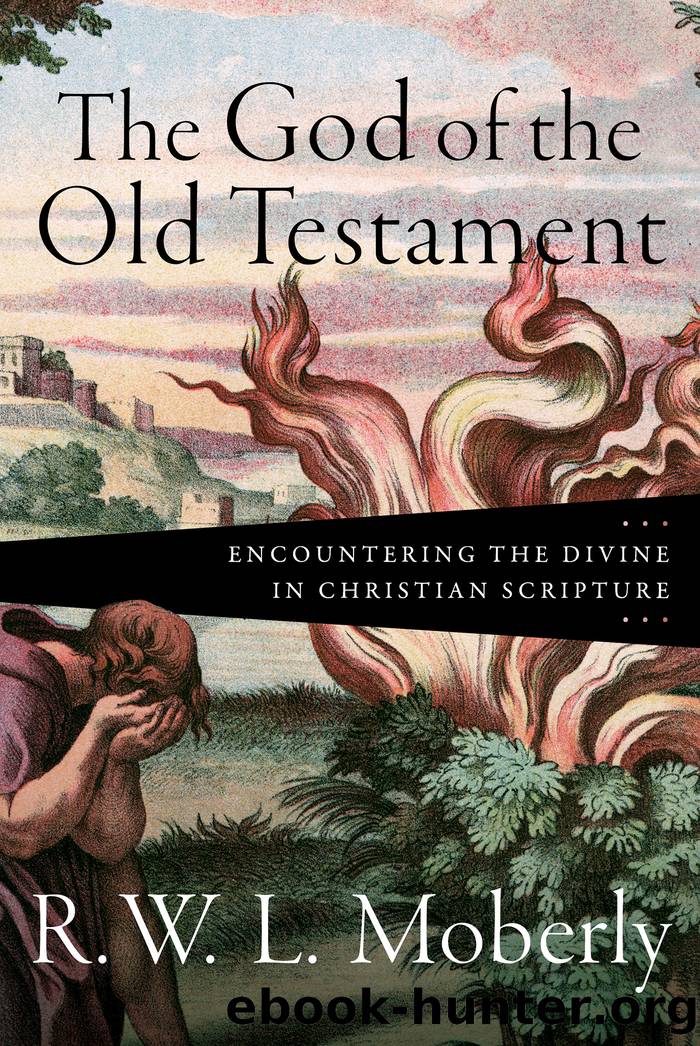The God of the Old Testament by R. W. L. Moberly

Author:R. W. L. Moberly [W. L. Moberly, R.]
Language: eng
Format: epub
Tags: Old Testament, Biblical teaching, Bible (Old Testament—Criticism|interpretation|etc), God (Christianity), REL006210, REL006090
ISBN: 9781493428380
Publisher: Baker Publishing Group
Jacob and Esau as a Narrative Analogy to Cain and Abel
I have already noted the likely narrative analogy between Cain and Abel and Jacob and Esau. In each instance there are two brothersâmost likely twinsâand essentially the first thing that is said about them is that the one who comes out second at birth is favored over the firstborn brother. Esau is in the position of Cain, the unfavored firstborn, while Jacob is favored like Abel. The story of Cain and Abel focuses almost entirely on the unfavored Cain, while the later and much more extensive narrative focuses predominantly on the favored Jacob, although the unfavored Esau also has a significant role.
On the one hand, neither Abel nor Jacob is favored, and neither Cain nor Esau is unfavored, because they have in any way deserved it. On the other hand, however, the story of Jacob and Esau presents a particular difficulty to readers: the favored Jacob seems to be especially undeserving.
In the first episode in which we meet Esau and Jacob as adult figures, neither is an attractive character. Esau, who sells his birthright for a mess of pottage, is uncouth and irresponsible. And Jacob, who will not feed him in his hunger without first extracting his birthright from him, is uncompassionate and manipulative (Gen. 25:29â34).
More developed, and more difficult in almost every way, is the account of Jacobâs gaining the blessing that the dying Isaac intended for Esau (Gen. 27:1â45). Jacob deceives Isaac and thereby cheats Esau out of the blessing. The story is enigmatic to the reader of the overall Jacob narrative inasmuch as no reference is made to the oracle that the LORD gave to Rebekah in her pregnancy, the oracle in which Jacob is favored over Esau (25:23). The position of this oracle at the very outset of the story of Jacob and Esau makes it an interpretive key to the whole. Yet the question of how the content of the oracle might have, or should have, affected the thoughts and actions of the characters in Genesis 27 is left entirely to the readerâs imagination. Unsurprisingly, this allows for great diversity in how readers reconcile (or not) the LORDâs favoring of Jacob with the deceptive actions of Jacob and his mother Rebekah, who instigates the deception. The story raises uncomfortable questions about the possibility of the LORDâs purposes being fulfilled through immoral and manipulative actions.
The outline of the story is straightforward. Isaac, anticipating his imminent death, tells Esau to hunt and bring him his favorite savory food âso that I may bless you before I dieâ (Gen. 27:1â4). Rebekah overhears this and tells Jacob to help her quickly prepare Isaacâs favorite food while Esau is out hunting, so that when Jacob takes it to Isaac, he, instead of Esau, will receive Isaacâs blessing (27:5â10). When Jacob questions the practicality of this (though not its morality), Rebekah overrules his doubt and makes all the necessary arrangementsânot only the food but also an appropriate disguise for Jacob (27:11â17).
Download
This site does not store any files on its server. We only index and link to content provided by other sites. Please contact the content providers to delete copyright contents if any and email us, we'll remove relevant links or contents immediately.
The Lost Art of Listening by Michael P. Nichols(7506)
Why I Am Not A Calvinist by Dr. Peter S. Ruckman(4153)
The Rosicrucians by Christopher McIntosh(3521)
Wicca: a guide for the solitary practitioner by Scott Cunningham(3179)
Signature in the Cell: DNA and the Evidence for Intelligent Design by Stephen C. Meyer(3138)
Real Sex by Lauren F. Winner(3023)
The Holy Spirit by Billy Graham(2953)
To Light a Sacred Flame by Silver RavenWolf(2823)
The End of Faith by Sam Harris(2742)
The Gnostic Gospels by Pagels Elaine(2531)
Waking Up by Sam Harris(2461)
Nine Parts of Desire by Geraldine Brooks(2369)
Jesus by Paul Johnson(2363)
Devil, The by Almond Philip C(2333)
The God delusion by Richard Dawkins(2309)
Heavens on Earth by Michael Shermer(2285)
Kundalini by Gopi Krishna(2185)
Chosen by God by R. C. Sproul(2165)
The Nature of Consciousness by Rupert Spira(2108)
